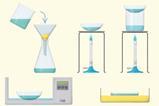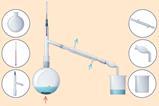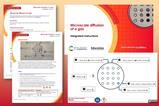Take this advice to heart and your training year is guaranteed to be a success

Your training year is intense. Whether you’re on the PGCE route or SCITT, your time in school will be demanding, exhilarating and sometimes overwhelming. I still remember the anticipation and nerves when stepping into the classroom those first few times.
The day-to-day requirements of training are significant. Getting used to the students and staff, learning to effectively plan and teach, working out how assessment works, course reading and writing – the list goes on. However, thinking about some areas early can pay dividends.
1 Organisation
This is critical to being successful. You need a diary with the key deadlines. These include parents’ evenings, report deadlines, course essay deadlines and so forth. Have a clear idea of the topics that you will be teaching to each of your groups over the placement or year. Your host department should have programmes of study in place which you can work from. If not, discuss with your mentor, and pin down what needs to be taught by when.
2 Subject knowledge
Know your subject well – this will improve your confidence in the classroom, and help your students to learn the concepts. If you haven’t engaged with a particular area for a long time, don’t just rely on reading the class textbook. Look at a textbook or website for the next level up as well. You have to have a clear idea of the simplifications and models that may be being used. General A-level textbooks, such as Chemistry in Context, or websites such as Jim Clark’s chemguide can be helpful.
3 Pedagogical content knowledge (PCK)
This is the knowledge and understanding of how to teach the subject and how students learn. You’ll find a lot of PCK within departments from experienced teachers. Talk to them about how they approach trickier concepts such as chemical equations and equilibrium. Read publications such as Keith Taber’s Chemical misconceptions books, and try the CPD courses from the RSC. Keep a journal of what went well, and what didn’t, in your lessons. If you can, practise teaching to an empty classroom or with a colleague.
4 Resources
Many teachers like making resources – you can be creative and feel like you’re making progress. However, with limited time, you can’t create all your own resources. Use those in your department’s schemes of work, or from high-quality sources such as ChemSheets and Education in Chemistry.
5 Practical work
This can be the highlight of many students’ day, and one of the most stressful for a teacher. Preparation is essential – you need to know the purpose and expected outcome of the practical; make your requisitions in good time; practise the task beforehand; carry out a risk assessment. Draw on the experience of your technicians, and make use of CLEAPSS guidance. You may find integrated instructions may prove helpful.
6 Assessment
Keep a balance between assessment and planning. Some pieces of work will need marking, such as topic tests. For other work, be selective – think about what you will learn from your assessment, and how this will impact your next lesson. I’ve found whole class feedback helpful for speeding up marking and improving feedback. It also feeds into my teaching of the topic next time round.
7 Observations
It may not feel like it at times, but you may have quite a few ‘frees’ during the week. Get into other teachers’ classrooms and observe them. Watch as widely across the school as you can – both new and experienced teachers, in your subject and outside. PE and DT teachers can be particularly useful for ideas about managing pupils on the move (think practical work!).
8 Classroom management
Draw strongly on the support of your mentor, head of department and the pastoral teams. Read and use the school behaviour policy, and talk to other teachers about how it actually works on the ground.
9 Key people in the school
The many support staff in schools will help you throughout the year – technicians, IT support, site staff, administration and office staff, canteen staff – get to know them well!
10 Professional bodies
The Royal Society of Chemistry and Association of Science Education are both relatively cheap to join as a student teacher, and give you low-cost access to networks, support, training resources and conferences. Both have a good presence on social media such as Twitter, and you will also find many friendly science teachers willing to offer support, advice and resources.
Ultimately, a teaching career is a marathon, not a sprint. Try to maintain a clear perspective of what you can reasonably expect from yourself during a year – you won’t be an expert after one year. Recognise that your work-life balance will be affected in the training year, but that maintaining your health and relationships is vital to getting through training and into your career. Remember: ‘good enough’ is good enough when you are starting out. Good luck!














2 readers' comments